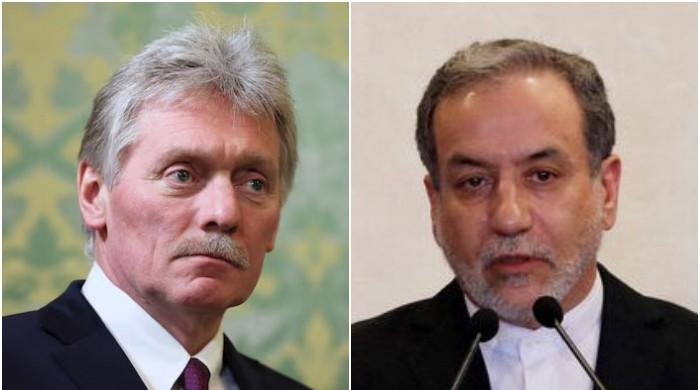Russia and Iran Advocate for De-escalation Between Pakistan and India
Amid escalating tensions between Pakistan and India following the recent deadly assault on tourists in Indian Illegally Occupied Jammu and Kashmir (IIOJK), both Russia and Iran have appealed for de-escalation. The call comes in response to the heightened tensions between the two nuclear-armed nations.
New Delhi has accused Islamabad of involvement in the April 22 attack in Pahalgam, which resulted in 26 fatalities. Islamabad has vehemently denied these accusations, dismissing them as unfounded. This has led to a sequence of intense threats and diplomatic reciprocation.
Islamabad asserts it possesses “reliable intelligence” indicating India’s intention to initiate military action, heightening the risk of conflict between the neighboring countries.
Kremlin representative Dmitry Peskov conveyed to reporters, “We express our hope that the involved parties will implement measures aimed at reducing the existing tensions.” He further stated, “We are observing the tense environment along the border with considerable apprehension.”
During a telephonic conversation with Indian Prime Minister Narendra Modi, Russian President Vladimir Putin affirmed that the “uniquely privileged partnership” between Moscow and Delhi remains resilient to external pressures and is consistently progressing across various domains, according to a statement released by the Kremlin.
Last week, Moscow communicated its readiness to mediate, following discussions between Russian Foreign Minister Sergei Lavrov and representatives from both nations.
Peskov emphasized, “India holds the status of our strategic ally, while Pakistan is also a valued partner. We deeply value our relationships with both Delhi and Islamabad.”
Upon his arrival in Islamabad for a one-day visit, Iran’s Foreign Minister urged both India and Pakistan to demonstrate restraint.
Iranian Foreign Minister Abbas Araqchi informed reporters in Islamabad, “Our objective is de-escalation, and we earnestly implore all parties to exercise self-control and abstain from actions that could intensify tensions.”
Iranian Ambassador Reza Amiri Moghadam informed state media that this matter would be addressed, highlighting Iran’s strong connections with both countries.
According to Iran’s embassy in India via X, Araqchi is scheduled to visit Delhi on Thursday. It remains uncertain whether these visits were arranged before the recent surge in tensions.
Pakistan’s foreign office released a statement highlighting the forthcoming meetings, stating, “The two sides will also discuss different perspectives on regional and global matters.”
India’s foreign ministry has not yet provided a response to requests for comments. Previously, it has rejected third-party mediation in issues concerning Kashmir.
Since the attack, Islamabad has engaged with numerous global capitals to address the situation. This includes a recent phone conversation between Foreign Minister Ishaq Dar and his Russian counterpart, Sergey Lavrov.
The foreign office released a statement on Sunday, stating that “Lavrov voiced his worries about the current situation and emphasized the significance of diplomacy in resolving conflicts.” He advocated for moderation from both sides, urging them to avoid escalation.
Islamabad has also instructed its representative at the United Nations to request a UN Security Council meeting to update the council on what it describes as India’s “aggressive actions” that jeopardize peace and security.



Comments (0)
No comments yet. Be the first to comment!
Leave a Comment